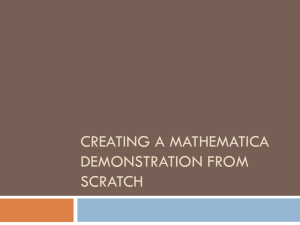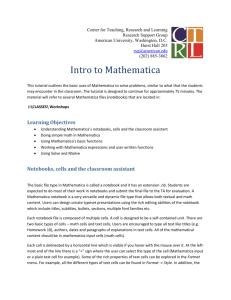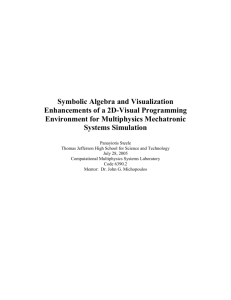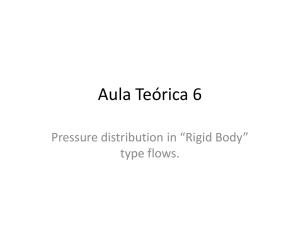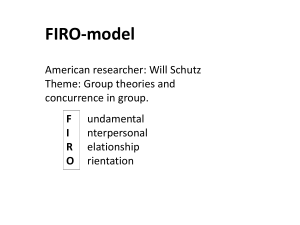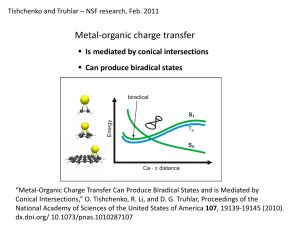ball gsa presentation - Geological Society of America
advertisement
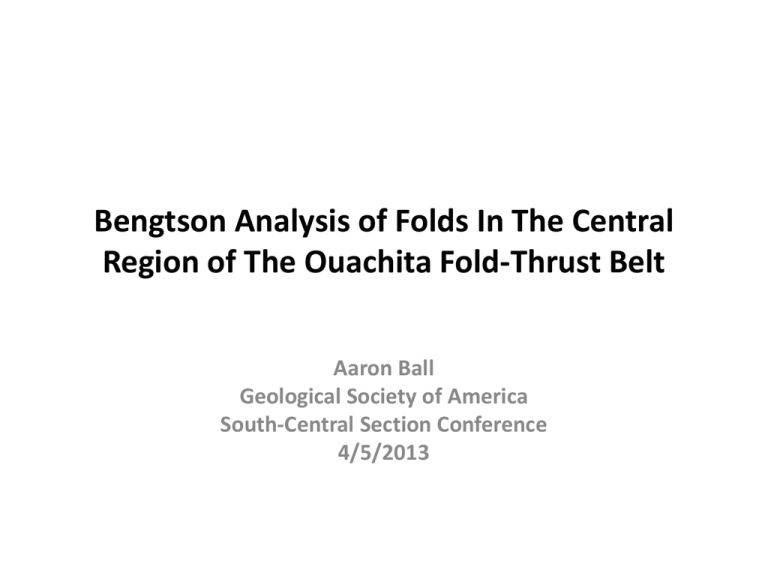
Bengtson Analysis of Folds In The Central Region of The Ouachita Fold-Thrust Belt Aaron Ball Geological Society of America South-Central Section Conference 4/5/2013 Geologic setting • This study focuses on the Boktukola syncline and two associated anticlines • Part of the Ouachita Fold & Thrust Belt, SE Oklahoma • Central region of Ouachita System between the Boktukola and Windingstair faults • Characterized by several broad, north-verging synclines Introduction Methods: Bengtson Analysis Cylindrical Folds Conical Folds Adapted from Bengtson 1980 Methods: Mathematica Code • No computer program for Bengtson plots • I developed code for tangent diagram analysis with Mathematica • Used field measurements and published orientation data • Part of M.S. Thesis on geometry and placement of syncline Methods: Mathematica Code Methods: Mathematica Code • CreateBengtsonDiagram module creates background vector graphic • PlotBeddingAttitudes module plots data points on background Methods: Mathematica Code • ContourBeddingAttitudes module • Grids plot area using method described by Haneberg (2003) • Counts data points within a search radius – Calculates distance from node to data point – If point is within defined search radius then count value increases • Finally, assigns count value to grid node for contouring Methods: Mathematica Code • Mathmatica function ListContourPlot generates contour lines from 3D gird • Curve fitted to data for analysis • Although the hyperbola is best fit curve for conical folds (Bengtson, 1980), the a parabola is used here. • Parametric form of parabola can be fitted to data using rotation and translation matrice Methods: Mathematica Code Methods: Mathematica Code • The linear equation for fitting the parabola in parametric equations: x = a t2 sin(τ ) + 2 a t cos(τ ) + ψ sin(τ ) y = a t2 cos(τ ) – 2 a t sin(τ ) – ψ cos(τ ) • Where : τ = trend angle - /2, ψ = plunge angle, a = openness factor of parabola Methods: Mathematica Code • Manipulate function allows user to fit curve to determine trend/plunge and openness of parabola • User must interpret contours to determine fold morphology • This process equivalent contouring Kalsbeek Counting Net Methods: Mathematica Code • The openness factor (a) of parabola is estimated from contour plot. • Cylindrical folds treated as special case of a conical fold with large openness factor (>10) • Function for least-squares fitting or minimizing RMSE of parabolic curve is forthcoming Results: Nunichito Anticline • • • • Gently plunging, conical anticline Crestline trend/plunge is 271, 16 Openness factor is 2.5 Best fit curve opens away from origin • This indicates vertex is down plunge (type II) Results: Boktukola Syncline • Subhorizontal, conical syncline • Crestline trend/plunge is 252, 3 • Openness factor is 3 • Best fit curve opens toward origin • indicating vertex is upplunge (type II) Results: Big One Anticline • Gently plunging, cylindrical anticline • Openness factor is >10 • Crestline trend/plunge is 078, 14 Discussion • Conical folds form during flexural slip with an element of rotation, which may indicate shear along bounding faults (Becker, 1995) • Big One Anticline is cylindrical fold due to decreasing shear along fault; Boktukola and Nunhichito may still have a sense of shear along the fault • Mathematica code provides user a rapid way to plot and analyze bedding attitudes • Analysis suggests shear along Boktukola fault followed compression • This shear may die out along the bend in the orocline Questions? Becker, A., 1995, Conical drag folds as kinematic indicators for strike-slip fault motion: Journal of structural geology, v. 17, no. 11, p. 1497-1506. Bengtson, C. A., 1989, Structural uses of tangent diagrams: Geobyte, v. 4, no. 1, p. 57-61. Bengtson, C. A., 1981, Comment and Reply on ‘Structural uses of tangent diagrams’: REPLY: Geology, v. 9, no. 6, p. 242-243. Haneberg, W. C., 2004, Computational Geosciences with Mathematica, Springer-Verlag GmbH. Whitaker, A. E., and Engelder, T., 2006, Plate-scale stress fields driving the tectonic evolution of the central Ouachita salient, Oklahoma and Arkansas: Geological Society of America Bulletin, v. 118, no. 5-6, p. 710.
